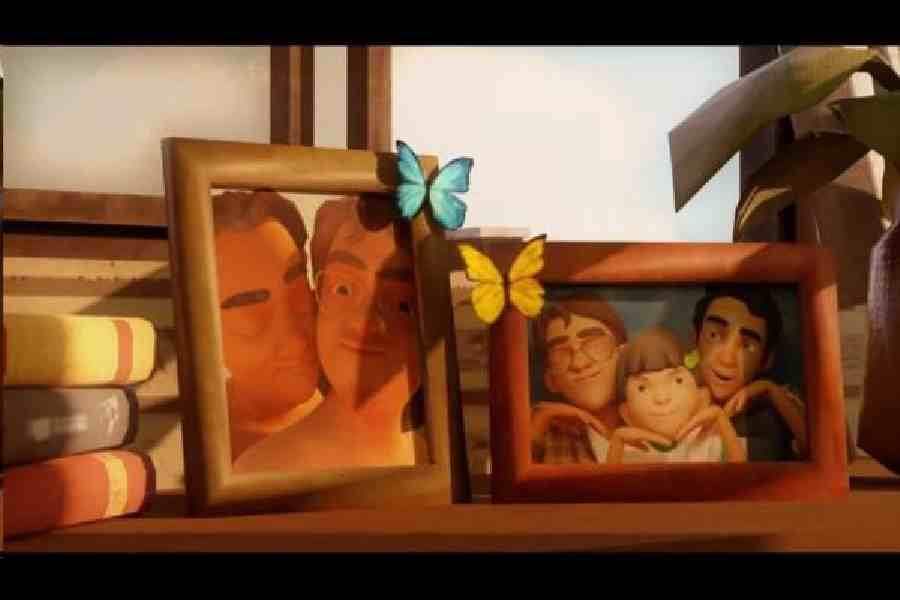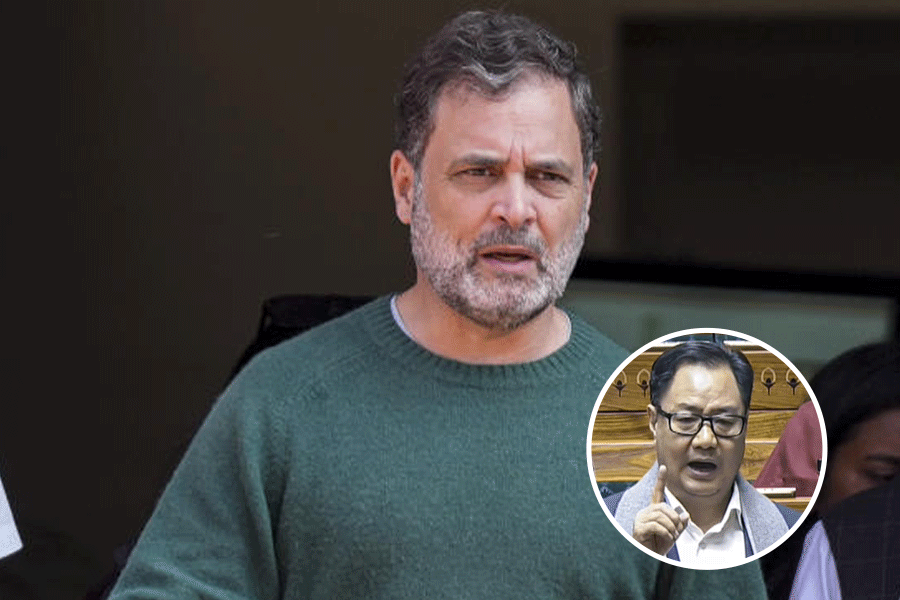Five Films for Freedom, the world’s widest-reaching LGBTQIA+ digital campaign, returned to India on March 13 this year, marking a decade of celebrating diverse queer stories from across the globe. The British Council is showcasing this year’s lineup of short films across the country, continuing the organisation’s longstanding partnership with the BFI Flare: London LGBTQIA+ Film Festival. This edition of Five Films for Freedom, which will be held across the country till March 24, constitutes five short films from the Philippines, India, the US, Spain and the UK, screened in the cities of Delhi, Gangtok, Agartala, Calcutta, Shantiniketan, Bengaluru, Chennai, Mumbai, Ahmedabad, and Goa in partnership with The Queer Muslim Project. The five films – Little One, Cursive, Halfway, The First Kiss, and Compton’s 22 – will also be available to watch on JioTV, connected apps, and the British Council’s YouTube channel during this time.
t2 attended the Calcutta screening of these short films at the British Council on Camac Street on March 15. Here’s what we took away from each of the films.
Little One (Ili Ili) by Clister Santos (The Philippines, 2024) — In the heart of Manila, Joy, the adopted daughter of Iko and Tino, is soon to be a mother. Anxious with pre-motherhood blues, she seeks parental guidance in the form of a video interview with her dads, but the family has to rush to the hospital when Iko’s health fails. Late at night, in Iko’s hospital room with his husband and daughter both asleep, Tino reflects on their family’s history as he speaks into his old camcorder (the same one that Joy would have used to record her parents with) and reveals the essence of his parenting journey with Iko. Talking about their initial struggles with adoption and parenting, Tino reassures Joy that despite the obstacles they faced, all their hardships were worth it in the end because they had Joy in their lives. Eventually, as Joy’s own little boy slowly grows up, Joy learns that parenting transcends the boundaries of gender. Against the backdrop of some gorgeous animation, the film touches upon themes of fatherhood, parenthood as a cycle, and carpe diem – a beautiful narrative stitched together to highlight that the little things and fleeting moments of life are neither little nor fleeting. What makes Ili Ili stand out is the way it portrays steadfast parental support through two very different generations. Not only is the film gentle and tender and tugs at every heartstring you might have, but it also makes an equally powerful statement about the timeless nature of parental love.
Cursive by Isabel Steuble-Johnson (The UK, 2023) —
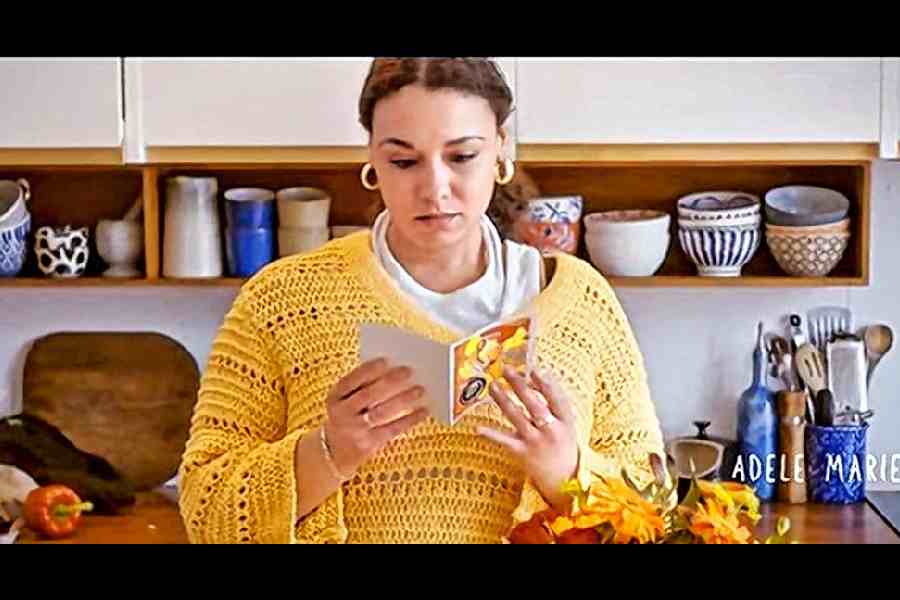
Dot, struggling with a relationship that she isn’t sure is leading anywhere anymore, hates her handwriting because she can’t write in cursive. She feels the way she writes isn’t in line with who she is any longer, and that it might be holding her back, leaving her stuck. Steuble-Johnson brilliantly depicts Dot and her girlfriend’s relationship through the metaphor of Dot’s handwriting. As Dot struggles to give proper shape to her letters, the stagnancy of the relationship she is in becomes increasingly clearer to the viewer. When Dot finally reaches out for help, acknowledging that her handwriting needs work, it serves to stand as her recognising that she needs to evaluate where she stands in her relationship. When eventually at the end of the short, Dot’s handwriting is completely different because of her finally being able to master cursive, it is a moment that represents her rediscovery and reinvention of herself. The film speaks volumes in very few words about self-discovery, growth, striving hard toward healing, and the strength and effort it takes to move on. What is even more interesting is Dot’s name itself, bringing to mind a full stop at the end of a sentence – something that marks an end but also heralds a new beginning, fitting with the overall theme of the film.
Halfway by Kumar Chheda (India, 2023) —
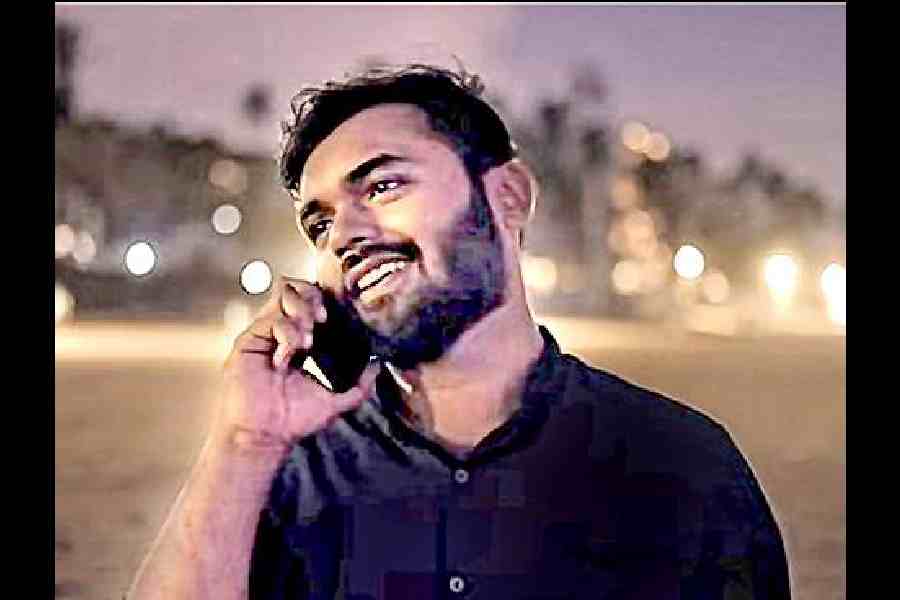
Nakul and Saarth have been having problems in their relationship. There hasn’t been enough communication and even fewer chances to spend time with each other, which results in them finally making plans to meet but ending up at opposite entrances to Juhu Beach. They try to find each other in the crowd while walking towards where they think the other is, but pass each other on the way without noticing, which means they have to go back all the way again. All the dialogue in the film happens in the form of a phone call between the two, which essentially means that neither of them actually sees each other throughout the length of the film. At the core of Halfway lies the message that love always exists beneath the surface — even if sometimes one has to move a lot of sand away from the surface to find it somewhere in the middle again. With Nakul and Saarth, it is the same — stuck on different pages in life, on the same general surface area but as though oceans apart, they struggle through the sand and brine to meet halfway again, a testament to the fact that loving is a choice, and one needs to actively choose the other every day. Nakul and Saarth’s relationship, like any other, is one that requires time, patience and effort, but they know neither of them is alone in this journey for the other promises to meet them somewhere in the middle.
The First Kiss (El Primer Besso) by Miguel Lafuente (Spain, 2023) — Andi is off to Madrid from his hometown Torrejon to have his first date with Nestor, a boy he met on Instagram. A beautiful day ends on a sour note when the pair encounter homophobia from a bunch of older guys, which leads to Nestor being pursued by the bullies and Andi nearly getting beat up by one who stayed behind.
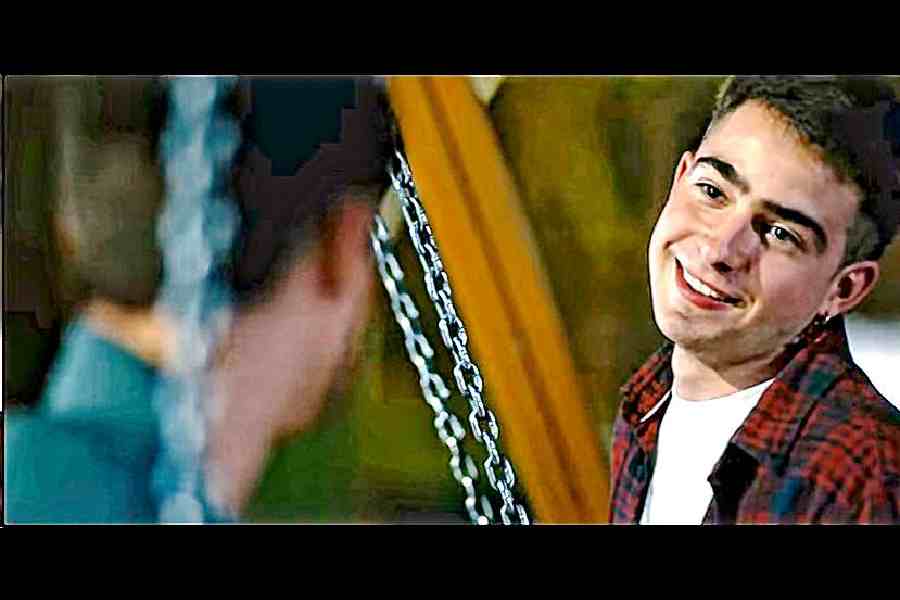
The film is an enormous dose of dopamine, filled with those rosy little details that always make a first date beautiful, right up till the point where the bullies arrive — one has the fabulous older brother, the conservative mom who comes round at the end, and typical first date shenanigans that will leave a happy trail of butterflies fluttering about merrily in your stomach. It is only those few tense moments near the end that we temporarily hold our breaths and pray for Nestor and Andi — the film does a beautiful job of representing not only the rosy bloom of young love but also the trail of thorns that come with being queer in a society that refuses to accept anything other than heteronormativity. With a particular scene in a bookstore in which the boys pore over the Heartstopper books together while a picture of Oscar Wilde grins down at them from the wall, the short is an absolute delight with a strong social message, sure to bring a teardrop or two to sentimental eyes.
Compton’s 22 by Drew de Pinto (The US, 2023) — The only relatively non-fiction short of all the five movies presented this year, Compton’s 22 begins by stating that three years before Stonewall, “On an unknown date in August 1966, trans women in San Francisco’s Tenderloin district rioted at Gene Compton’s Cafeteria. There was no media coverage and the arrest records no longer exist. Decades later, historians Susan Stryker and Victor Silverman unearthed the forgotten uprising and interviewed the surviving ‘Compton’s Queens’.” The film essentially has trans and gender-nonconforming performance artists reimagining the historic Compton riot based on testimonies from these remaining queens. Creating an intergenerational conversation between these archival interviews and young trans and gender-nonconforming artists today, the film uses performance to imagine an interpretive archive that stands in for the absence of existing visual documentation. Amongst other things, the Compton’s 22 reveals the powerful implications of intergenerational solidarity in the ongoing struggle for queer liberation. By bridging the gap between past and present, de Pinto underscores the resilience of marginalised communities and highlights the importance of preserving and sharing untold stories. Through its evocative portrayal of the Compton riot, the film not only honours the bravery of those who fought for their rights but also inspires continued activism for a more inclusive and equitable future.

